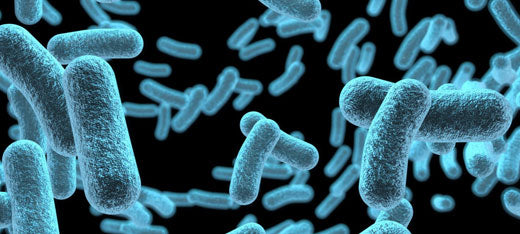Dental bacteria - what problems?

Dental bacteria are microorganisms naturally present in the human mouth. They play an essential role in oral health.
Certain bacteria can also cause dental health problems if they proliferate excessively.
Here are some important things to know about dental bacteria:
-
Dental plaque: Dental bacteria form dental plaque, a thin, sticky layer that constantly forms on teeth. This plaque is made up of bacteria, food debris and saliva. If it is not removed regularly by brushing and flossing, it can harden and turn into tartar, thus encouraging the proliferation of bacteria.
-
Dental caries: Certain bacteria are present in dental plaque that produce acid by digesting the sugars in the foods you eat. This acid can attack tooth enamel and cause tooth decay if left untreated.
-
Gingivitis and periodontal disease: When plaque builds up along the gum line, it can cause gingival inflammation called gingivitis. If left untreated, gingivitis can progress to periodontal disease, a more serious condition that damages the supporting tissues of the teeth, including bone.
-
Good and bad bacteria: It is important to note that not all bacteria in the mouth are harmful. Some are beneficial for oral health. For example, Streptococcus mutans is a bacteria that contributes to dental caries, while others, such as Streptococcus salivarius, have a protective effect by preventing harmful bacteria from proliferating.
-
Prevention: To maintain good oral health, it is essential to control dental plaque by practicing good oral hygiene. This includes brushing your teeth regularly, flossing to clean between your teeth, and visiting the dentist for regular checkups and professional cleanings.
In summary, dental bacteria occur naturally in the human mouth and can play a role in oral health, but poor oral hygiene can encourage the growth of harmful bacteria, which can lead to problems such as dental caries and periodontal disease.
It is therefore important to maintain good oral hygiene to prevent these problems.
Recent articles
- What is tooth decay?
- Baby toothbrush
- Baby bottle tooth decay
- Have White Teeth Naturally
- Why oral hygiene?
- Gingivitis, sore gums
Categories
- Ampheris
- ampheris Silver Care
- antibacterien
- athletisme
- avoir-des-dents-blanches
- bactérie
- bacteries
- bacteries-dentaires
- bonne haleine
- brossage des dents
- brosse a dents
- brosse a dents enfant
- brosse a dents ionique
- brosse a dents manuelle
- brosse a dents silver care
- brosse-a-dents-bebe
- carie dentaire
- carie-du-biberon
- choisir une brosse à dents enfant
- comment se brosser les dents
- comment-avoir-des-dents-blanches
- comment-nettoyer-sa-prothese-dentaire
- contamination
- couleur tube de dentifrice
- covid 19
- dentifrice
- dentifrice dangereux
- dents dechaussees
- dents-blanches
- detartrage
- effet ionique
- escalade
- foot-ball
- gencive
- gencive qui saigne
- gencives qui saignent
- gingivite
- histoire-du-dentifrice
- hygiene
- hygiène dentaire
- importance-de-l-hygiene-dentaire
- invention de la brosse a dents
- le-sport-et-la-brosse-a-dents
- mauvaise haleine
- nettoyer-sa-prothese-dentaire
- parachutisme
- plaque dentaire
- plaque-dentaire
- postillons
- quelle est la meilleure brosse a dents
- qui a invente la brosse a dents
- salive
- santé buccodentaire
- sante-bucco-dentaire
- sante-buccodentaire
- silver care
- soins-dentaires
- tartre dentaire
- tartre-dentaire
- tête brosse a dents
- tete de brosse a dents

